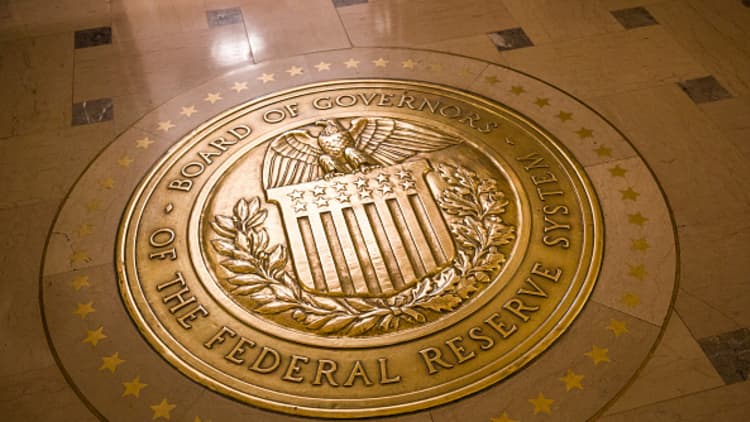
The Federal Reserve's decision to raise its interest rate once more this year and lower its projection for next year "hit the bulls-eye," former Wells Fargo CEO Dick Kovacevich told CNBC on Wednesday.
In a highly anticipated decision, the independent agency announced Wednesday it is increasing its benchmark interest rate a quarter-point to 2.25 to 2.5 percent, and planning for two hikes, one less than previously proposed, in 2019.
"It did exactly what I wanted [it] to do and what I thought is best to do," Kovacevich said on "Power Lunch."
Making his own case to boost the rate, Kovacevich pointed to a "huge fiscal stimulus" that was created by President Donald Trump's tax cut in 2017 and the country's rising deficit. In October, officials said the U.S. federal budget deficit grew 17 percent to $779 billion — its highest level in six years.
"So we don't need any more monetary stimulus," he said. "We have to get to neutral because we don't want the monetary stimulus to continually inflate asset prices, which will then get into a bubble and burst, and we've already seen some of that in the stock market."
The major indexes all bounced from 52-week lows following the Fed's 2 p.m. ET announcement. The Dow Jones Industrial Average and both closed down about 1.5 percent. The Nasdaq Composite finished more than 2 percent under.
Bank shares also fell more than 3.5 percent to bounce from a new 52-week low of 36.73. The SPDR S&P Bank ETF later inched back, but slipped 2.64 percent from Wednesday's open.
With Fed Chairman Jerome Powell taking a more dovish approach to 2019, Kovacevich said bank stocks will be "disappointed" by two increases because the sector benefits from higher interest rates but not from economic uncertainty. Kovacevich said banks need an economy that's not "too hot or too cold."
"I think this is good for bank stocks particularly because they've been hammered of late" by trade, a slowing global economy and geopolitical issues, he said.
"I think they're at or close to bottom," he added.
Looking ahead to 2019, Kovacevich said he anticipates the two rate hikes in March and June. He then expects the Fed to pause for about six months to see what happens.


